
Timeline
Title
Country/Nationality
Herman Melville
Melville's growing literary ambition showed in Moby-Dick (1851), which took nearly a year and a half to write, but it did not find an audience and critics scorned his psychological novel Pierre: or, The Ambiguities (1852). From 1853 to 1856, Melville published short fiction in magazines, including "Benito Cereno" and "Bartleby, the Scrivener". In 1857, he traveled to England, toured the Near East, and published his last work of prose, The Confidence-Man (1857). He moved to New York in 1863 to take a position as customs inspector.
Melville was born in New York City, the third child of a prosperous merchant whose death in 1832 left the family in financial straits. He took to sea in 1839 as a common sailor on a merchant ship and then on the whaler Acushnet but he jumped ship in the Marquesas Islands. Typee, his first book, and its sequel, Omoo (1847), were travel-adventures based on his encounters with the peoples of the island. Their success gave him the financial security to marry Elizabeth Shaw, the daughter of a prominent Boston family. Mardi (1849), a romance-adventure and his first book not based on his own experience, was not well received. Redburn (1849) and White-Jacket (1850), both tales based on his experience as a well-born young man at sea, were given respectable reviews but did not sell well enough to support his expanding family.
Melville's writing style shows both consistencies and enormous changes throughout the years. His development "had been abnormally postponed, and when it came, it came with a rush and a force that had the menace of quick exhaustion in it". As early as "Fragments from a Writing Desk", written when Melville was 20, scholar Sealts sees "a number of elements that anticipate Melville's later writing, especially his characteristic habit of abundant literary allusion". Typee and Omoo were documentary adventures that called for a division of the narrative in short chapters. Such compact organization bears the risk of fragmentation when applied to a lengthy work such as Mardi, but with Redburn and White Jacket, Melville turned the short chapter into a concentrated narrative.
Melville's work often touched on themes of communicative expression and the pursuit of the absolute among illusions.
Books by Herman Melville
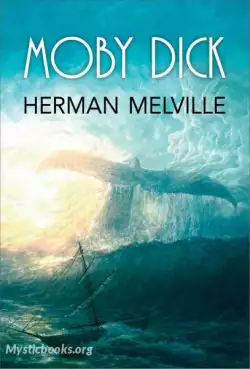
Moby Dick, or the Whale
Few things, even in literature, can really be said to be unique — but Moby Dick is truly unlike anything written before or since. The novel is nominally about the obsessive hunt by the crazed Captain Ahab of the book’s eponymous white whale. But inte...
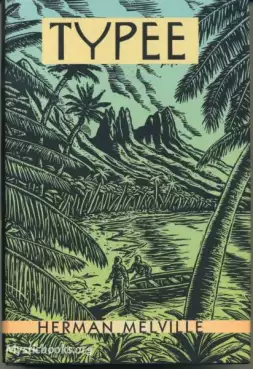
Typee
Typee: A Peep at Polynesian Life is the first book by American writer Herman Melville, published in early part of 1846, when Melville was 26 years old. Considered a classic in travel and adventure literature, the narrative is based on the author's ac...
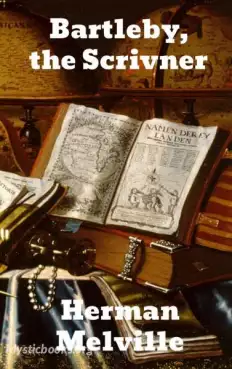
Bartleby the Scrivener
"Bartleby, the Scrivener: A Story of Wall Street" is a short story by the American writer Herman Melville, first serialized anonymously in two parts in the November and December 1853 issues of Putnam's Magazine and later reprinted with minor textual...
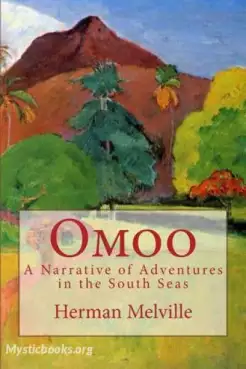
Omoo: A Narrative of Adventures in the South Seas
Omoo: A Narrative of Adventures in the South Seas is the second book by American writer Herman Melville, first published in London in 1847, and a sequel to his first South Sea narrative Typee, also based on the author's experiences in the South Pacif...
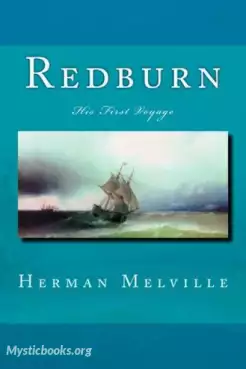
Redburn: His First Voyage
The book is semi-autobiographical and recounts the adventures of a refined youth among coarse and brutal sailors and the seedier areas of Liverpool. Melville wrote Redburn in less than ten weeks. While one scholar describes it as "arguably his funnie...

Benito Cereno
Benito Cereno takes place in 1799. The captain of a sealing ship Bachelor’s Delight, Captain Amasa Delano, spots another ship drifting listlessly towards the bay of Santa Maria. Wondering if the ship may be in distress, Delano boards his whale-boat a...
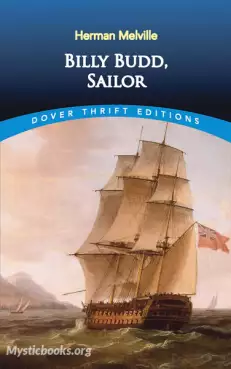
Billy Budd
Billy Budd, Sailor (An Inside Narrative) is a novella by American writer Herman Melville, left unfinished at his death in 1891. Acclaimed by critics as a masterpiece when a hastily transcribed version was finally published in 1924, it quickly took it...
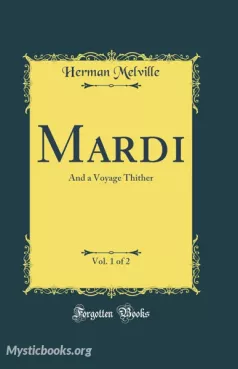
Mardi Vol. 1
Have you ever wondered what lies beyond the veil of reality? In Herman Melville's classic novel, Mardi, a young man named Taji embarks on an epic journey to discover the truth about the universe. Along the way, he encounters a cast of strange and ex...

Bartleby the Scrivener, A Story of Wall Street.
"Bartleby the Scrivener: A Story of Wall Street" is a short story by Herman Melville. The story first appeared, anonymously, in Putnam's Magazine in two parts. The first part appeared in November 1853, with the conclusion published in December 1853....

Confidence-Man: His Masquerade
The Confidence-Man: His Masquerade is a complex and unsettling novel that explores the nature of human nature, the elusiveness of truth, and the corrosive effects of cynicism. Through a series of encounters on a steamboat journey down the Mississippi...

White Jacket, or The World in a Man-of-War
Published in 1850, "White-Jacket" is a semi-autobiographical novel by Herman Melville that details his experiences as a young sailor aboard the USS United States. The novel explores the harsh realities of life on a 19th-century warship, exposing the...

Encantadas or Enchanted Isles
In "The Encantadas," Melville explores the stark beauty and harsh realities of the Galapagos Islands. Through a series of philosophical sketches, he portrays the desolate landscape, the unique and often bizarre wildlife, and the enduring struggle for...

Selections from Battle-Pieces and Aspects of the War
This collection of poems offers a kaleidoscopic glimpse into the American Civil War, exploring shifting emotions, unresolved traumas, and the ambivalent reflections of post-war America. While not a systematic chronicle, the poems draw inspiration fro...

Mardi Vol. 2
Mardi is Herman Melville's first purely fictional work, a complex and philosophical novel that explores the nature of belief and the search for truth. Through an allegorical journey across the South Pacific, the protagonist, Taji, encounters diverse...

Pierre, or The Ambiguities
Pierre Glendinning is a young man from a wealthy family who is engaged to be married to Lucy Tartan. However, when he meets Isabel Banford, a mysterious woman who claims to be his illegitimate sister, his life is turned upside down. Pierre becomes ob...
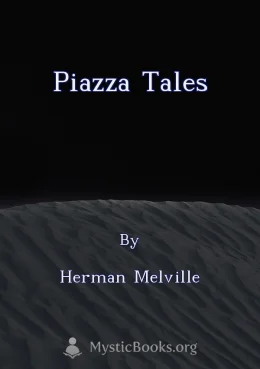
Piazza Tales
Herman Melville's *Piazza Tales* is a collection of six short stories that showcase his diverse literary talents. The volume includes iconic works such as "Bartleby, the Scrivener" and "Benito Cereno," both of which delve into themes of isolation, al...

Battle-Pieces and Aspects of the War
Battle-Pieces and Aspects of the War by Herman Melville is a collection of poems about the American Civil War. The poems are written from the perspective of both soldiers and civilians, and they capture the horrors of war as well as the moments of he...
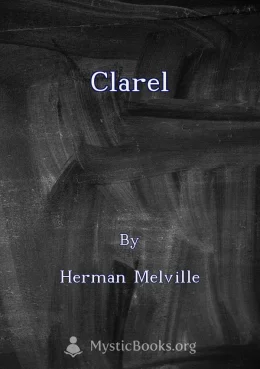
Clarel
Clarel is an epic poem by Herman Melville that follows the journey of a young American, Clarel, to the Holy Land. The poem explores themes of faith, doubt, love, death, and suffering. Clarel's journey is both physical and spiritual, as he encounters...